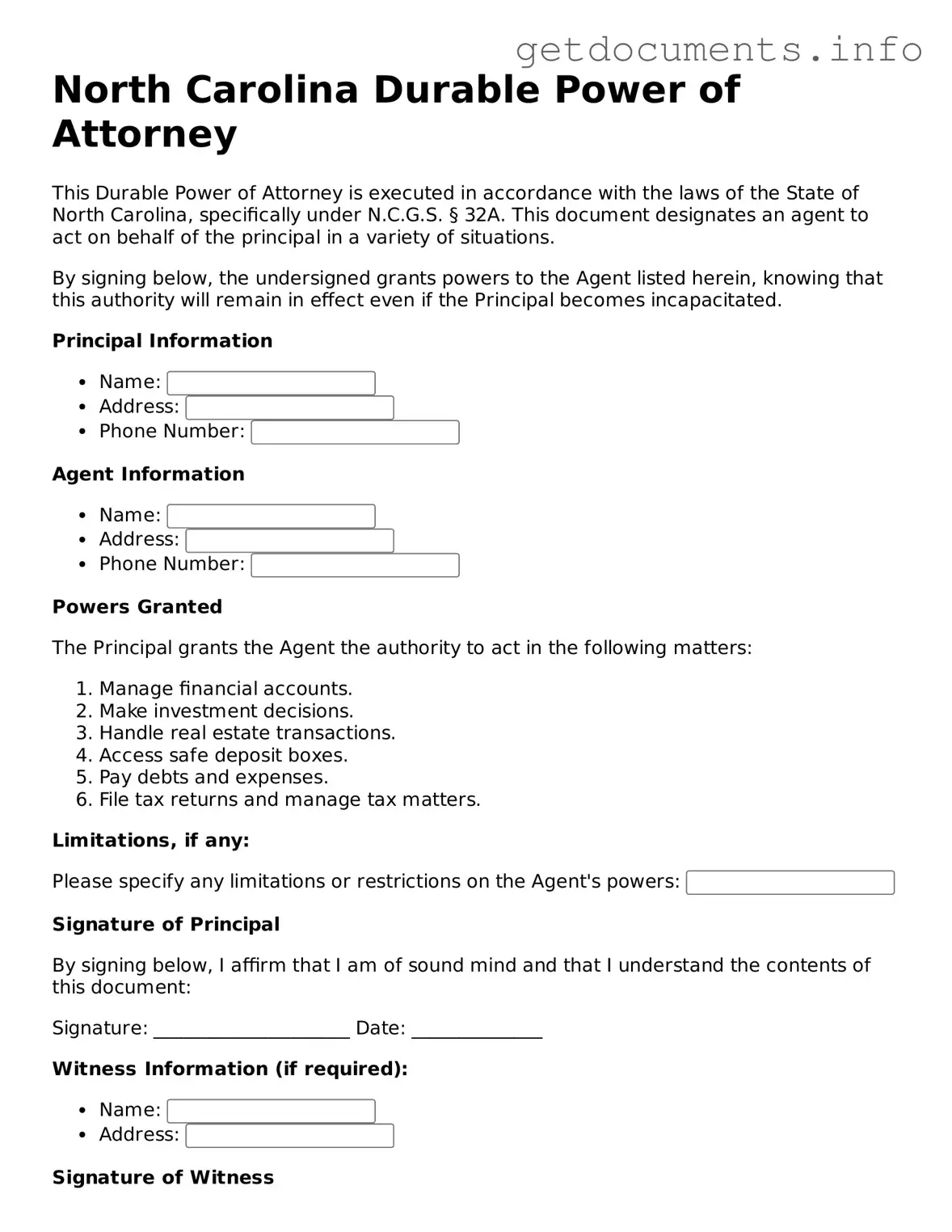Free Durable Power of Attorney Template for North Carolina
A North Carolina Durable Power of Attorney form is a legal document that allows an individual, known as the principal, to designate another person, called the agent, to make decisions on their behalf regarding financial and legal matters. This form remains effective even if the principal becomes incapacitated, ensuring that their affairs are managed according to their wishes. For those considering this important step, filling out the form can provide peace of mind; click the button below to get started.
Access Durable Power of Attorney Editor

Free Durable Power of Attorney Template for North Carolina
Access Durable Power of Attorney Editor
Got places to be? Complete the form fast
Fill out Durable Power of Attorney online and avoid printing or scanning.
Access Durable Power of Attorney Editor
or
⇩ PDF File
